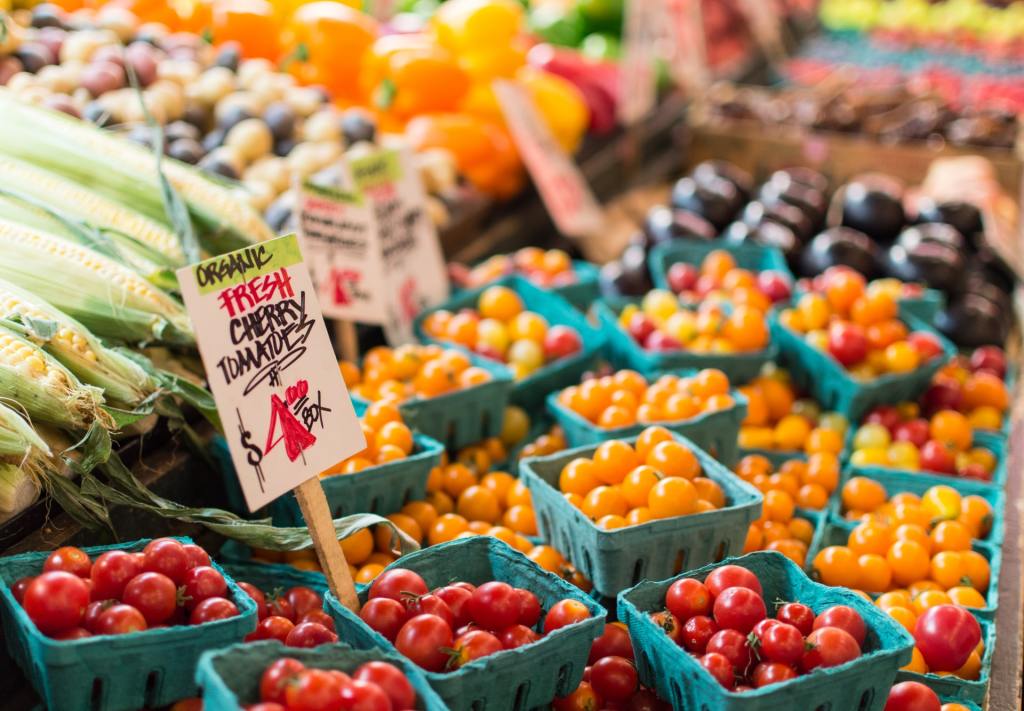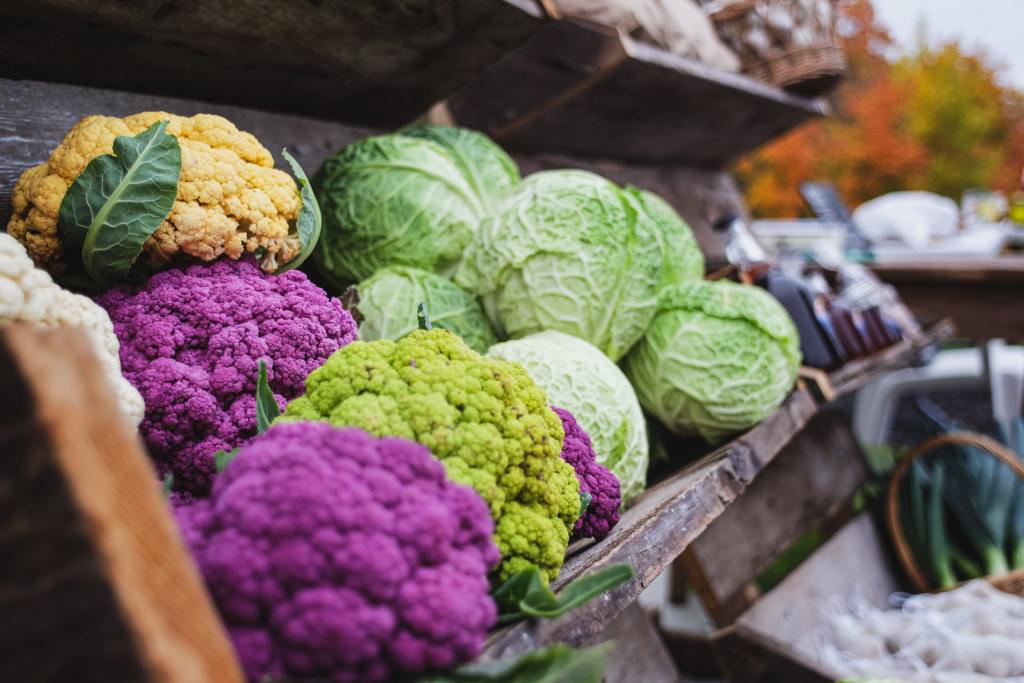There’s almost nothing worse than buying a big grocery haul just to find all your produce has wilted, over-ripened, or rotted before you could get around to eating them. It’s especially painful when those items are from the more expensive farmer’s market, and you know someone grew those with love. To avoid this, use the tips and tricks below to extend the life of your produce so you can get the most out of your grocery hauls.
The ideal conditions
The ideal conditions for each fruit and vegetable are going to be different. Some like it dry and cool, while others like a bit of moisture and to be in the coldest part of the refrigerator. There are three factors to keeping produce fresh: selecting the freshest produce to start, ethylene gas, and air circulation

Choose the freshest produce
When at the farmer’s market, it’s essential to not just grab the first apple you see and stuff it in your bag. To ensure your apples, bananas, and spinach stay fresh for as long as they can, it’s vital to select unblemished and sometimes underripe produce. You’ll get a longer shelf life when they’re at peak health.
Ethylene gas
Bananas and apples naturally release ethylene gas, which allows the fruit to ripen faster. Unfortunately, it’s this same gas that will inevitably lead to rotting. Other produce such as leafy greens, broccoli, and cabbage are more sensitive to this gas and will wilt and spoil quickly if stored near these gas-emitting fruits.
Store gas-emitting fruits away from sensitive fruits to ensure everyone has a fighting chance at staying fresh for as long as possible.
Let them breathe
Some fruits or veggies do well in the refrigerator, but veggies like potatoes, onion, and garlic fare much better when they are in a dry, cool area with plenty of airflow. Sitting moisture is the death of almost any fruit. It’s important to allow air to get between produce items to keep things perky and fresh.
How to store these specific fruits and veggies
Potatoes and sweet potatoes
These tuber veggies prefer to be left in a dark, cool, dry place with plenty of airflow. They are also ethylene gas-sensitive, so it’s best to keep them away from onions or bananas.
Be sure your potatoes don’t have any sprouts or green skin. This is a sign that they might contain harmful amounts of poison chemicals called glycoalkaloids.
Other roots and tubers
Carrots, ginger, beets, and many more root and tuber veggies are best kept without their leafy greens attached. Cut these off before storing and place the veggie in a plastic bag in the refrigerator. Since these don’t release the ethylene gas, they can be stored alongside more ethylene gas-sensitive veggies like leafy greens and cauliflower.
Onions and garlic
Who doesn’t like the smell of onions and garlic frying in a pan? To preserve these delicious alliums, it’s vital not to refrigerate them. Store them in a cool, dry, dark place with some air circulation. Moisture of any kind will make these produce items spoil much faster. Never keep them in a plastic bag. Keep them away from potatoes, since they are ethylene gas-emitting veggies and will spoil the potatoes more quickly.
If your onions or garlic start to sprout, don’t panic. These greens are safe to eat, but you can easily cut them off as well.

Cabbages
Whether you make your own sauerkraut, coleslaw, or you just love fried cabbage, finding your beautiful veggie wilted and floppy is a colossal disappointment. For the longest shelf life possible, store this veggie cut in the refrigerator in an airtight container or whole without a container. After a week or two, the cut edges of a stored cabbage might begin to discolor, but when you’re ready to use it, just shave off those bits and you’re ready to go.
Winter Squash
This is another ethylene gas-sensitive produce, so you should keep it away from bananas, onions, and other gas-emitting produce. They store best at room temperature and away from direct sunlight. Here’s a pro-tip: if you don’t use the whole veggie, peel and chop the unused portion and store it in a sealed container in the refrigerator for future use.
Lettuces and other leafy greens
Don’t wash leafy greens before storing them in the refrigerator. Seal them in an airtight ziplock or container unwashed. If there’s an excessive amount of moisture around your leafy greens, they’ll rot much faster.
Pears and apples
Apples are another ethylene gas producer and should be kept away from sensitive produce items. Instead, store apples in a sealed plastic bag near non-sensitive products like strawberries, blueberries, oranges, and raspberries. Apples will stay crisper longer if kept in the coldest corner of your refrigerator, not on the counter like many home design magazines would suggest.
Citrus Fruit
Nothing says summer like a fresh and juicy orange! Store these types of delicious fruits on the countertop for up to a week or in the refrigerator for longer. They aren’t ethylene sensitive, so that they can be stored with gas-emitting veggies or fruits.
We hope you can use this information to avoid finding your spinach wilted and mushy when you’ve been craving a spinach salad all day. These tips will save you time and money in meal prepping and keeping healthy, delicious snacks around the house.
Editors' Recommendations
- 6 tips you should keep in mind when building your own drought-tolerant garden
- Gardening 101: 7 easy seeds to grow in cups for a tiny, adorable, and low-maintenance indoor garden
- What’s in season at the farmers market this November
- Where to buy seed potatoes for your garden
- Are mulched leaves good for grass? Here’s how to mulch a lawn full of leaves this fall



